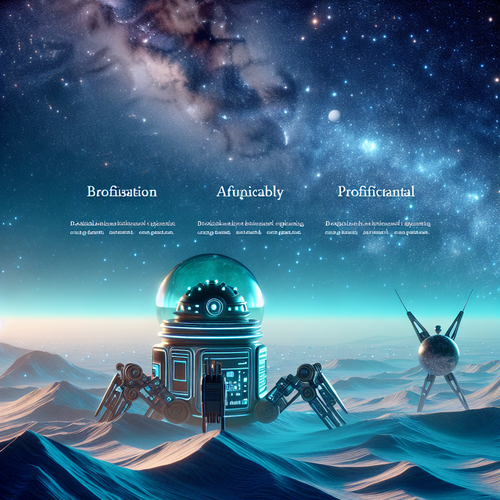
AI in Space Exploration: The Next Frontier
AI in Space Exploration: The Next Frontier
As we venture deeper into the cosmos, the integration of artificial intelligence (AI) in space exploration is becoming increasingly vital. From autonomous rovers navigating the Martian terrain to sophisticated algorithms analyzing vast amounts of astronomical data, AI is revolutionizing how we understand our universe.
1. The Role of AI in Space Missions
NASA and other space organizations are increasingly relying on AI to enhance mission efficiency and safety. Here are some critical applications:
- Autonomous Navigation: Spacecraft equipped with AI can make real-time decisions during flight, allowing for autonomous navigation to distant celestial bodies.
- Data Processing: AI is adept at analyzing vast datasets collected by satellites and probes, identifying patterns and anomalies that human operators might overlook.
- Robotic Assistance: AI-powered robots can perform complex tasks in environments that are hazardous for humans, such as Mars and the Moon.
2. Examples of AI-Powered Space Exploration
Several high-profile missions have showcased the potential of AI in space:
NASA’s Perseverance Rover
The Perseverance rover, launched in 2020, is equipped with an AI-driven navigation system that allows it to make decisions about its path in real-time. This capability is crucial for safely traversing the unpredictable terrain of Mars, where communication delays with Earth can hinder timely decision-making.
European Space Agency’s Aeolus Satellite
The Aeolus satellite uses machine learning algorithms to improve weather forecasting by analyzing wind data in real-time. This innovation demonstrates how AI can enhance not only space missions but also life on Earth.
3. Challenges and Future Prospects
While AI holds tremendous promise for space exploration, several challenges remain:
- Data Security: As AI systems generate and handle sensitive data, ensuring the security of this information is paramount.
- Ethical Considerations: The deployment of AI raises ethical questions, particularly concerning decision-making in critical situations.
- Interdisciplinary Collaboration: Continuous collaboration between scientists, engineers, and AI specialists is necessary to develop effective AI tools for space exploration.
4. Conclusion
AI is poised to play a transformative role in space exploration, making missions more efficient and safe. As we continue to push the boundaries of what is possible in the cosmos, the collaboration between humans and machines will open new frontiers for discovery.
For more insights into emerging technologies, check out our post on Decentralized Identity: The Future of Online Security.













